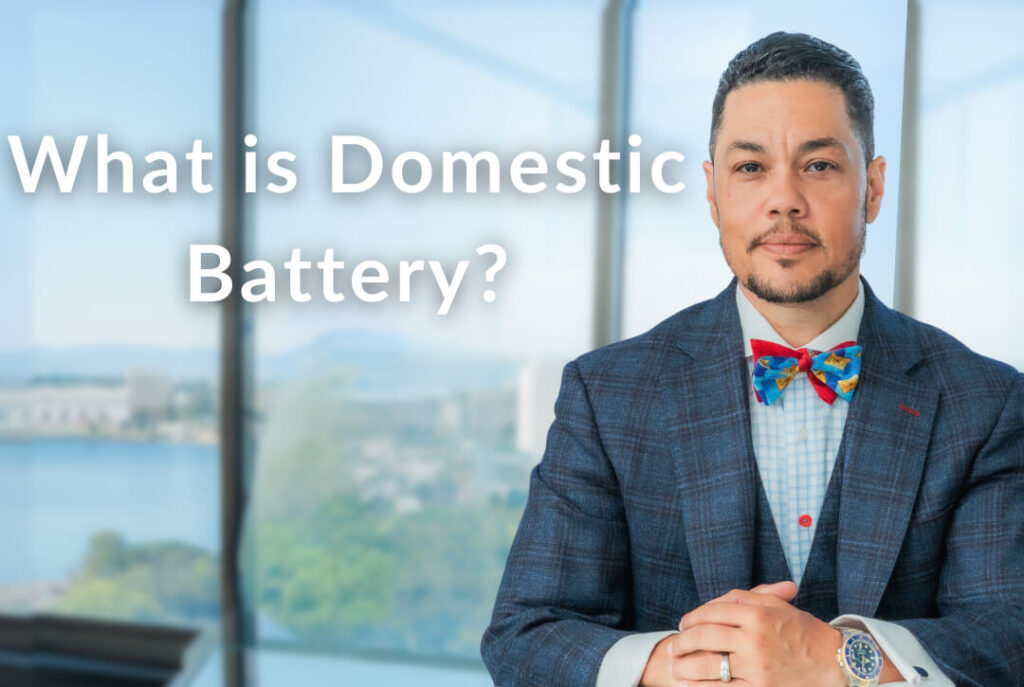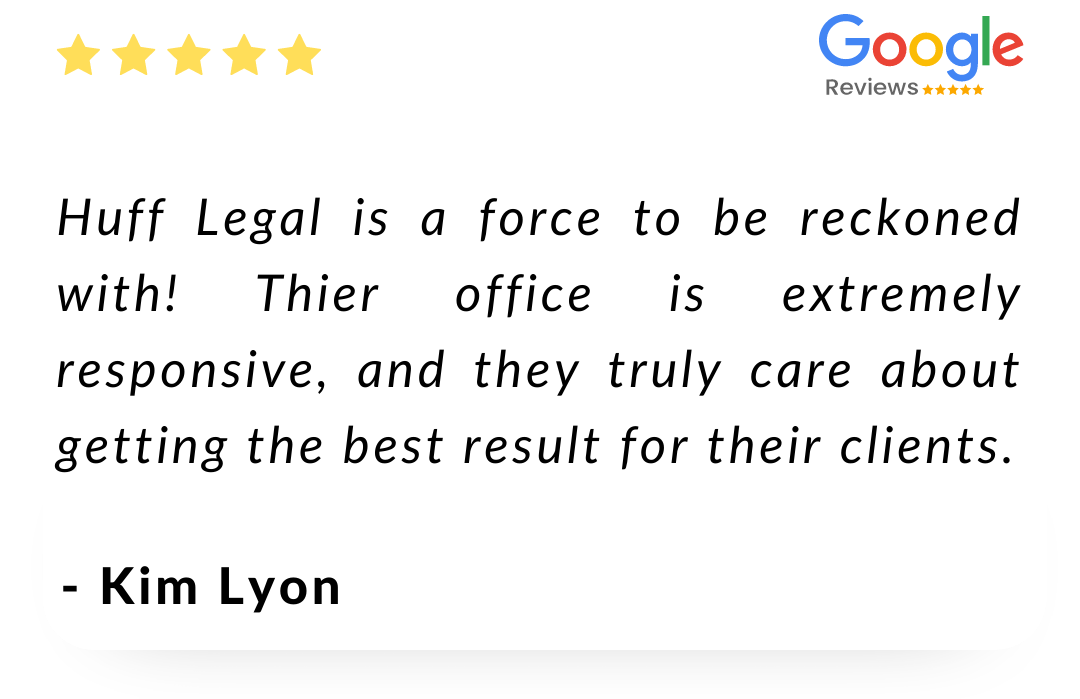What is Domestic Battery? Understanding California Penal Code 243(e)
What is Domestic Battery? Understanding California Penal Code 243(e)
Domestic violence is a serious issue that affects millions of people every year. In fact, an estimated 10 million Americans experience domestic violence annually. If you’re one of the many who have been accused of domestic battery, you’re likely feeling overwhelmed and unsure of what to do next.
What exactly constitutes domestic battery under California law, and what kind of penalties could you be facing? This article will provide a comprehensive overview of California’s domestic battery laws, including the legal definition, potential punishments, and common defenses.
By the end, you’ll have a clearer understanding of the charges you’re up against and how an experienced criminal defense attorney can help protect your rights and freedom.
Legal Definition of Domestic Battery Under PC 243(e)
Penal Code 243(e)(1) defines domestic battery as a serious crime in California. Understanding the legal definition and elements of this offense is crucial for anyone facing charges or seeking to protect their rights.
Elements of the Crime
To convict someone of domestic battery under PC 243(e)(1), prosecutors must prove three key elements:
- Willful touching: The defendant must have intentionally made physical contact with the victim.
- Harmful or offensive touching: The contact must have been harmful or offensive, even if it did not cause physical injury.
- Touching an intimate partner: The victim must be a current or former intimate partner of the defendant, such as a spouse, fiancé(e), cohabitant, or co-parent.
What Does it Mean to Touch Someone "Willfully"?
In the context of domestic battery, “willfully” means that the defendant acted on purpose or willingly. The prosecution does not need to prove that the defendant intended to break the law or cause injury – only that they intended to make the physical contact.
Request a Free Consultation
What is Considered "Harmful" or "Offensive" Touching?
Harmful or offensive touching is any physical contact that is done in a disrespectful, angry, or rude manner. It does not require actual injury or pain. Even minor contact can qualify as a domestic battery if it is done in an offensive way.
Who Qualifies as an "Intimate Partner"?
Under PC 243(e)(1), the domestic battery can only be committed against an intimate partner, which includes:
- A current or former spouse
- A current or former cohabitant (someone who lived with the defendant as an intimate partner)
- A fiancé(e)
- A co-parent (someone with whom the defendant shares a child)
- A current or former dating partner
In some cases, proving a qualifying relationship may be straightforward, such as with a spouse or co-parent. However, in other situations, like alleged cohabitation or dating relationships, the court will carefully examine the facts of the case to determine if the relationship meets the criteria for domestic battery charges.
Are there Legal Defenses to Domestic Battery Charges?
If you’re facing domestic battery charges in California, it’s essential to understand the legal defenses that may be available to you. Working with an experienced criminal defense attorney can help you build a strong case and protect your rights.
Here are some common defenses to domestic battery charges:
Self-Defense or Defense of Others
One of the most common defenses to domestic battery charges is self-defense or defense of others. If you can show that you reasonably believed you or someone else was in imminent danger of suffering bodily injury, and you used only the amount of force necessary to protect yourself or the other person, you may have a valid self-defense claim. However, the force used must be proportionate to the threat faced, and you must not have been the initial aggressor.
Lack of Intent or Accident
Another potential defense is lack of intent or accident. To be convicted of domestic battery, the prosecution must prove that you willfully touched the victim in a harmful or offensive manner. If the contact was accidental or unintentional, you may have a defense.
For example, suppose you accidentally bumped into your partner during an argument, causing them to fall and get injured. In that case, you may be able to argue that you lacked the necessary intent for domestic battery.
False Accusations
Unfortunately, false accusations of domestic violence are not uncommon. In some cases, an alleged victim may falsely accuse someone of domestic battery out of anger, jealousy, or a desire to gain an advantage in a divorce or child custody proceeding.
If you believe you have been falsely accused, your attorney can work to challenge the credibility of the accuser and any witnesses. It may involve pointing out inconsistencies in their statements, presenting evidence that contradicts their claims, or showing that they have a motive to lie.
Related Offenses
While domestic battery under Penal Code 243(e)(1) is a serious charge, it is not the only offense that can arise from domestic violence incidents. Depending on the specific circumstances, you may also face charges for other related crimes.
Corporal Injury to a Spouse or Cohabitant (PC 273.5)
Penal Code 273.5, also known as “corporal injury to a spouse or cohabitant,” is similar to domestic battery but with one key difference – it requires that the victim suffer a “traumatic condition” or actual physical injury. It could include bruises, cuts, broken bones, or other medical conditions resulting from the defendant’s actions.
Like domestic battery, PC 273.5 applies to current or former spouses, cohabitants, fiancé(e)s, and parents of the defendant’s child. Depending on the severity of the injuries and the defendant’s criminal history, prosecutors can charge this as either a misdemeanor or a felony.
Penalties range from up to one year in county jail for a misdemeanor to two to four years in state prison for a felony conviction.
Aggravated Battery (PC 243(d))
Penal Code 243(d), or “aggravated battery,” involves battery that results in “serious bodily injury” to the victim. It means any significant impairment of the victim’s physical condition, such as a lost tooth, loss of consciousness, or bone fractures.
Aggravated battery can be charged as either a misdemeanor or a felony, with potential penalties of up to one year in county jail for a misdemeanor or two to four years in state prison for a felony.
Unlike a domestic battery, aggravated battery does not require a specific relationship between the defendant and the victim. It can be charged in any situation where serious injury results from a battery, regardless of the parties’ relationship.
Elder Abuse (PC 368)
Penal Code 368, the elder abuse statute, applies when the victim is an elder (65 years of age or older) or a dependent adult. The law prohibits willfully causing or permitting an elder or dependent adult to suffer physical pain, mental suffering, or great bodily injury. It also covers situations where the defendant has a duty of care for the victim and fails to provide for their health and safety.
Elder abuse can be charged as either a misdemeanor or a felony, depending on the severity of the harm and the defendant’s actions. Penalties range from up to one year in county jail for a misdemeanor to two to four years in state prison for a felony. Additional enhancements may apply if the victim suffers great bodily injury or dies as a result of the abuse.

As Seen On












What to Do if Charged with Domestic Battery
If you’ve been charged with domestic battery, it’s crucial to take immediate action to protect your rights and build the strongest possible defense. The steps you take in the early stages of your case can have a significant impact on the outcome.
Seek Legal Representation
One of the most important things you can do when facing domestic battery charges is to seek experienced legal representation as soon as possible. A skilled criminal defense attorney can:
- Explain your rights and guide you through the legal process
- Investigate the allegations against you and gather evidence to support your defense
- Identify weaknesses in the prosecution’s case and challenge their evidence
- Negotiate with prosecutors for reduced charges or a dismissal when possible
- Represent you in court hearings and at trial, if necessary
Trying to navigate the criminal justice system on your own can be overwhelming and may lead to missed opportunities or mistakes that harm your case. By working with a knowledgeable lawyer, you can ensure that your rights are protected and that you have the best chance at a favorable outcome.
Potential Defenses and Strategies
Your attorney will work with you to develop a personalized defense strategy based on the unique facts of your case. Some potential defenses and challenges to domestic battery charges may include:
- Self-defense: If you used reasonable force to protect yourself or others from imminent harm, you may have a valid self-defense claim.
- Lack of evidence: The prosecution must prove every element of the domestic battery charge beyond a reasonable doubt. If there are gaps or inconsistencies in their evidence, your attorney can challenge the case against you.
- False accusations: Unfortunately, false allegations of domestic violence do occur. Your lawyer can investigate the accuser’s motives and look for evidence that undermines their credibility.
- Violations of your rights: If law enforcement violated your constitutional rights during the investigation or arrest process, your attorney may be able to have certain evidence excluded from the case.
What Clients Say About Us





Schedule Your Free Consultation Today
Get the Experienced Legal Help You Need for Domestic Battery Charges
Facing a domestic battery charge can be overwhelming, but you don’t have to navigate this difficult situation alone. The skilled attorneys at Huff Legal, PC are here to provide the compassionate guidance and aggressive defense you need to protect your rights and future.
At Huff Legal, we have extensive experience handling domestic battery cases throughout California. We’re passionate about pursuing justice for our clients and will work tirelessly to build the strongest possible defense on your behalf.
If you’re facing a domestic battery charge, don’t wait – contact Huff Legal today for a free consultation, and let us fight for you.
FAQ
What is the penal code 243 E in California?
Penal Code 243(e)(1) in California defines the crime of domestic battery. It prohibits willfully and unlawfully touching an intimate partner in a harmful or offensive manner.
What is the crime code 243 in California?
California Penal Code 243 covers various battery offenses, including simple battery (PC 242), battery against a peace officer (PC 243(b)), and battery causing serious bodily injury (PC 243(d)).
What is the sentence for battery charges in California?
The penalties for battery charges in California vary depending on the specific offense. Simple battery (PC 242) is a misdemeanor punishable by up to 6 months in county jail and/or a $2,000 fine. More serious battery charges can result in felony convictions with state prison sentences.
What is the difference between 273.5 and 243 E 1?
The main difference between Penal Code 273.5 (domestic violence causing corporal injury) and 243(e)(1) (domestic battery) is that 273.5 requires the victim to have suffered a physical injury, while 243(e)(1) does not. 273.5 can be charged as either a misdemeanor or felony, while 243(e)(1) is only a misdemeanor offense.
Contact a Bay Area Accessory to Domestic Violence Lawyer Today!
If you or someone you know is facing charges of domestic battery, it is crucial to consult with a qualified criminal defense attorney who can provide personalized legal advice based on the case’s specific circumstances. They can help navigate the legal process, protect your rights, and provide guidance on the potential penalties you may face.
Hiring a competent and knowledgeable criminal defense attorney in the San Francisco Bay Area who can represent you in court is essential to defending yourself and preserving your future. Our Bay Area Accessory to Domestic Violence Lawyer at Huff Legal can use various strategies to achieve the best possible outcome for your case.
LET HUFF HELP YOU
As a former police officer and patrol supervisor and his time spent as a United States District Court Judicial Law Clerk to the Chief Judge, Attorney Huff knows how to navigate all levels of the complex criminal law system. We also have more than 55 years of combined experience dealing with various complex criminal legal matters and have helped just over 1,500 clients over the past few years.
Why Huff Is Your Best Option For Criminal Defense
55+ Years of Combined Experience
At Huff Legal, we have more than 55 years of combined experience dealing with complex criminal legal matters, which can oftentimes be quite challenging. In order to get the outcome you deserve, you need a team of experienced attorneys on your side, who can help you navigate the legal system, so you can move past this situation and focus on the life ahead of you!
5 Star Rating on Google
We have a proven track record of success and are dedicated to our clients’ best interests. If you’re looking for a law firm that will always have your back, look no further than Huff Legal. Just have a look at some of our amazing client reviews over here!
1,500+ Happy Clients
Over the years, we’ve had the privilege of helping over 1,500 clients with their legal needs. When you work with us, you can be confident that you’re getting the best possible legal representation. We’re proud of our track record and our reputation for being a firm that delivers great results.
What Our Clients Say About Us


Sheila


Abel Resendiz


Manuela Frazier


Doris
Contact Huff Today
Request A Free Consultation
* Free consultations only available for Criminal Defense


In legal terms, an accessory to murder refers to an individual who aids, abets, or otherwise assists in committing a murder. While the specifics may vary across jurisdictions, California law treats accessories to murder as active participants in the crime, holding them accountable for their actions. In San Francisco Bay Area, there are two primary types of accessories to murder:
In the event that you find yourself in the Bay Area facing accessory to murder charges, you should first call a criminal defense attorney who can help you defend your rights and lessen the effects of the investigation. Contact an attorney at Huff Legal as soon as possible following your arrest. An accomplished attorney from Huff Legal will thoroughly examine your case, who will then develop a strategy and build a defense.
